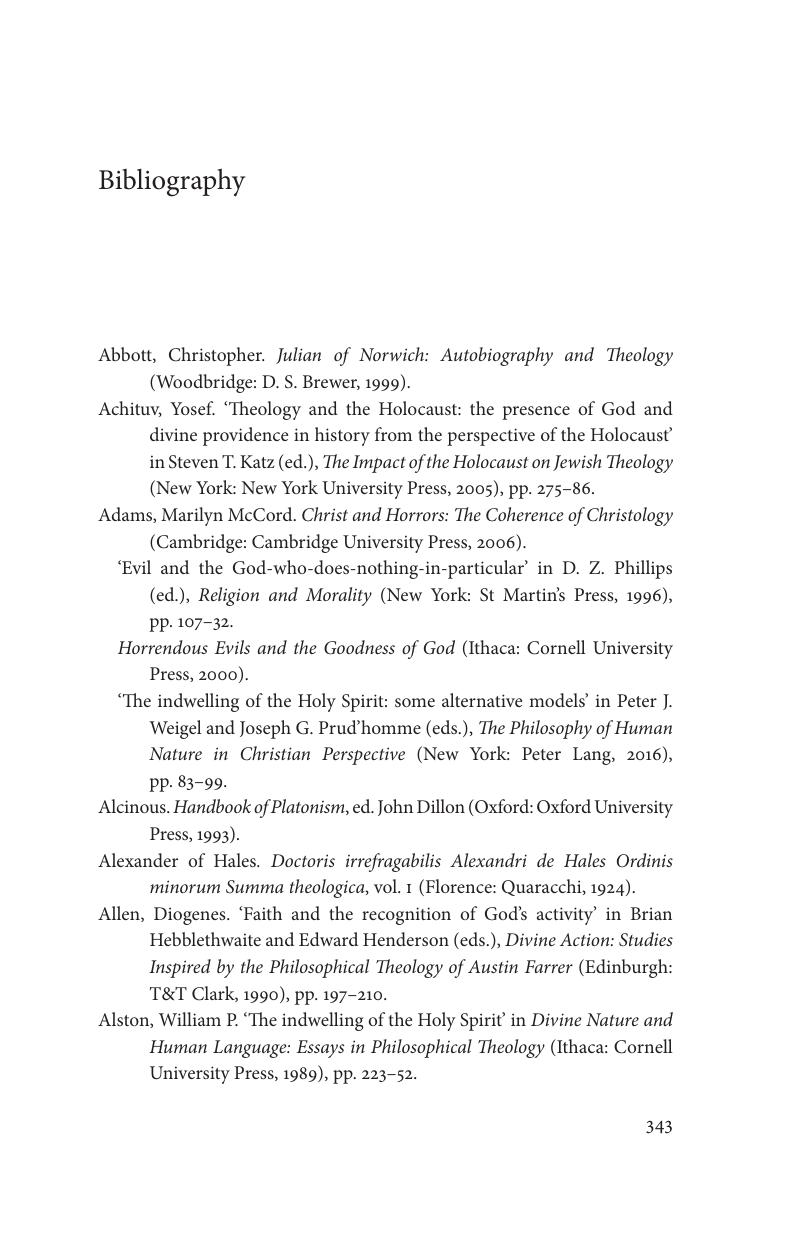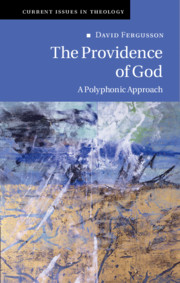Book contents
- The Providence of God
- Current Issues in Theology
- The Providence of God
- Copyright page
- Dedication
- Contents
- Acknowledgements
- Introduction
- 1 Sources of Providentialism
- 2 The Latin Default Setting
- 3 Dispersals of Providence in Modernity
- 4 Providence in Nature
- 5 Twentieth-Century Reactions
- 6 Providence Reconstructed
- Bibliography
- Names Index
- Subject Index
- References
Bibliography
Published online by Cambridge University Press: 16 August 2018
- The Providence of God
- Current Issues in Theology
- The Providence of God
- Copyright page
- Dedication
- Contents
- Acknowledgements
- Introduction
- 1 Sources of Providentialism
- 2 The Latin Default Setting
- 3 Dispersals of Providence in Modernity
- 4 Providence in Nature
- 5 Twentieth-Century Reactions
- 6 Providence Reconstructed
- Bibliography
- Names Index
- Subject Index
- References
Summary

- Type
- Chapter
- Information
- The Providence of GodA Polyphonic Approach, pp. 343 - 370Publisher: Cambridge University PressPrint publication year: 2018



